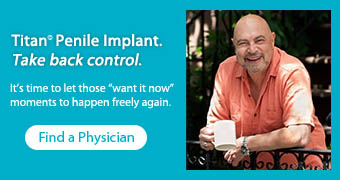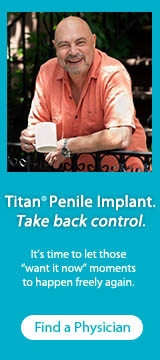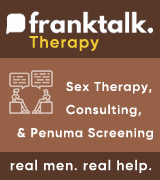kinggg wrote:
All the classic symptoms of low T I'm experiencing currently despite my T count of 337. Btw my Folicle Stimulatin Hormone count is 2.6. I don't know what that is exactly, maybe you can tell me what thats for? Do you think its too low?
Believe it or not, before I got into the medical device industry I worked in clinical marketing in pharma for a company which sold a testosterone replacement. So a lot of this is stuck still in my brain. If you're frankly symptomatic at 337 then you just need to find someone to listen to you, forge on and supplement your testosterone, but do it in a step-wise, controlled manner...the goal being, get you to the lowest dose of testosterone supplementation necessary which sufficiently alleviates your demonstrated symptoms. If you're not being taken seriously about your
symptoms, then move on to another doc.
Maybe your symptom-free peak TRT # will be 500 and maybe it will be 900 or 1,000. You just need to identify a doc who is not blowing smoke about their knowledge and capabilities on such things. It might not be your urologist who should be managing this, you might in fact want to seek out a competent endocrinologist who you find you have a good rapport with, one who is curious, one who listens, and one who is patient in seeing this through with you. I've had physicians who didn't even have a basic understanding of the inevitable natural declines in native T production as men age:

- testosterone2.jpg (27.8 KiB) Viewed 1526 times
So I've decided to juggle my TRT puzzle and my historic ED with two different docs, one from each specialty. They talk to one another and we've found a good rhythm. My uro got a little uncomfortable with the testosterone peak levels I was showing in the early part toward middle of my 10 day injection cycle (upwards of 1,100) but my endo was able to be part of that discussion and things are working out well now.
Part of their comfort level revolved around my submitting to some other recurring lab testing to monitor, chiefly, the TRT impact on my blood; ie, higher levels of testosterone are associated with increased hematocrit/hemoglobin (higher red blood cell production/counts) and higher blood viscosity ("thicker" blood, for lack of a better way to say it, ie blood demonstrating less resistance to flow, never, ever a good thing) and higher platelet adhesion (you don't want highly adhesive platelets or platelet aggregation...that's how you end up with thromboembolic events ie clots). So the responsible physician is going to want to closely monitor such things as your max T #'s edge higher. Don't fight that.
As relates to FSH...ok,remember, I'm not a clinician/physician here, just a guy who's spent his life working in the drug/device side of human medicine, so please don't take the following as gospel...it's just my accumulated knowledge of the basics...please validate with an engaged, competent clinician...
But at 2.6 you're probably within a "normal" reference range there, too, but on the low end. FSH helps regulate reproduction in both genders and it's relationships with other hormones and tissues is complex. It acts on the testes, it spurs sperm production, it affects and influences general growth processes, puberty, maturation. Chronically low levels of FSH in men can be linked with pituitary and hypothalamic disorders. Insufficient testosterone may then be produced resulting in underdeveloped testicles, lowered sperm count, and of course all the other symptoms of low T already mentioned here. Either the pituitary or hypothalamus may be the culprit.
So with very low FSH, big big picture, worst case, and unlikely, but certainly possible scenario...there may be a tumor present in either the pituitary or hypothalamic gland which can be identified with a radiological examination. If FSH is trending very low over time a competent clinician will seek to rule out the bad stuff. A combination of CT scan and evaluation of prolactin serum levels would help with tumor diagnosis. If there is no tumor present, hypogonadism can then be treated with testosterone replacement therapy.
kinggg wrote:
A past uro of mine scripted me androgel which takes many weeks before it taking any effect. But I became scared to take it because I read about its nasty side effect of hair loss. This is why I'm thinking of taking short term injections. Do you think those cause hair loss? Have you yourself experienced any hair loss?
Any TRT can potentially impact hair loss. I don't know. I've been on TRT a long time and at pretty high levels to alleviate my symptoms and my hair after 10 years or so is utterly unchanged. I'm blessed with a full head of thick hair at 55 years old. Good hair DNA I guess.
You mention Androgel and time-to-effect. You're talking about "pharmacokinetics", the process by which a drug is absorbed, distributed, metabolized, and eliminated by the body. All those dynamics vary by 1) specific drug taken, 2) route of administration ie oral, transdermal, intramuscular, IV, and 3) your specific body make up, age, base metabolism, gender, other conditions, and on and on. Pharmacokinetics can be visually depicted with graphs pretty effectively to paint a picture of how a drug, generally, will behave after administration. For sure, the transdermal testosterone gels are slower to absorb into your system...they tend to have lower peak levels but more prolonged/elongated effects, and at typically lower total levels in your body over time. In a sense, if you are administering gels daily, you are more closely mimicking your body's natural process of testosterone production. A more even, flatter level over time with less up and down variability.
Intramuscular/injecting is a really different graph:

- Testosterone.jpg (47.23 KiB) Viewed 1526 times
Here you can see the relative absorption and distribution rates of testosterone in your body, over time, gel vs injection. That big bolus spike of levels over the first 1-3 days is, with injecting, unavoidable. The drug is more directly systemically available more quickly. Just how it is. It's beyond my knowledge to say which is "better" or preferred etc etc. They're just different. It makes sense to me logically that if you can mimic a natural bodily function closely, then you should. I tried with gels. I just couldn't get the levels I needed to alleviate symptoms unless I was rubbing gel on my shoulder in massive amounts and at short intervals. For me I just find the needle easier.
Sorry to ramble on here. Again, hope something in here was of some benefit.
54 yrs. Blessed with highly sexual 52 yr old wife. Pills 10 years, then 9 yrs Trimix. 28 cm Titan Touch XL 2019, Laurence Levine, Rush Univ Med Ctr, Chicago. Implant = nonstop fun. Hypogonadal, so also 10+ years testosterone replacement.






